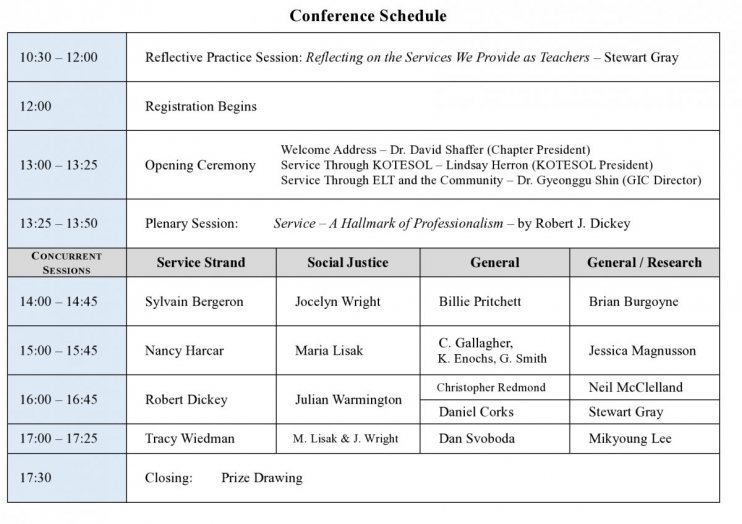
Gwangju-Jeonnam KOTESOL
Annual Regional Conference
March 12, 2016
Gwangju National University of Education
SERVICE: A Tradition in Teaching

Presentation Summaries and Presenters
[Select a presenter's name below to be taken to their presentation summary and bio-sketch.]
Plennary Session
Robert Dickey: Service – A Hallmark of Professionalism
Reflective Practice Morning Session
Stewart Gray: Reflecting on the Services We Provide as Teachers
_____________________
Service Strand
Sylvain Bergeron: Serving the Community Through Adult Language Education
Nancy Harcar: The Shared Benefits of Student Community Volunteer Experiences
Robert Dickey: Service Learning in Foreign Language Learning
Tracy Wiedman: How a Student Internship Program Can Globalize a University
Social Justice Strand
Jocelyn Wright: Simple Activities to Make Your Schools More Accepting
Maria Lisak: Content Builders for Community Action
Julian Warmington: Serve Your Students’ Children: Teach Anthropogenic Global Warming
Maria Lisak & Jocelyn Wright: Focusing on the Triple Bottom Line in Gwangju
General ELT Strand
Billie Pritchett: Grades, Grade Inflation, and What We’re Measuring
Christopher Gallagher, Ken Enochs, Guy Smith: Streamline the Teaching of Writing with Google Classroom
Christopher Redmond: Teaching the Article to Korean Learners
Daniel Corks: Effort-Based Grading for General Skills Language Classes
Daniel Svoboda: “End-to-End” English: The Pitfalls of Translating in ELT
General / Research Strand
Brian Burgoyne: Commonly Overlooked Issues with Classroom Management
Jessica Magnusson: Teaching Writing Skills: From Letters to Words to Sentences
Neil McClelland: Profiling EFL Learners’ Motivational Trajectories: A Mixed-Methods Study
Stewart Gray: Young EFL Learners and Critical Thinking: An Action Research Project
Mikyoung Lee: NNESTs’ Anxieties and Insecurities: Self-Perceptions of Their Communicative Limitations
Presentation Abstracts & Presenter Bio-sketches
.
– Plenary Session –
.
Service – A Hallmark of Professionalism
– Robert Dickey
Education is known as one of the “service industries.” But I think most of us would agree that we see teaching as more than just that – yes, even for those in the education sweatshops found across Korea. If we seek to be called “professionals,” how are we distinguishing ourselves from janitorial staff and short-order cooks?
In this brief presentation, we will charge ourselves with defining our marks of distinction. We may roughly classify these as (a) the way we work, (b) our expectations, and (c) our service.
In academia, performance evaluation is not strictly measured by the quantitative outputs (although this is changing somewhat). Common measures include research, classroom performance (however measured), the traditional “white-collar worker” measures, and SERVICE. Today we will talk about three types of service: (a) service on campus, (b) service within the profession, and (c) service in the wider community. Active participation from all attendees is highly sought. Through our service to our colleagues, we all learn.
The Speaker
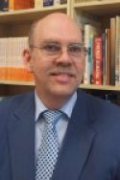 Rob Dickey has been teaching English and assorted other subjects in Korea since 1994. He is a past-president of Korea TESOL, and has been involved in the management of various organizations and events within and beyond TESOL since 1980. Rob holds advanced degrees in public administration (MPA) and law (JD), plus the CELTA, and has also completed coursework for a Master in English Education. His publications include the forthcoming entry “Ethics” in the TESOL Encyclopedia of English Language Teaching (Wiley-Blackwell). After 10+ years teaching in tourism-English and law departments, he has been teaching in the School for Public Service at Keimyung University since 2009. Email: rjdickey@content-english.org
Rob Dickey has been teaching English and assorted other subjects in Korea since 1994. He is a past-president of Korea TESOL, and has been involved in the management of various organizations and events within and beyond TESOL since 1980. Rob holds advanced degrees in public administration (MPA) and law (JD), plus the CELTA, and has also completed coursework for a Master in English Education. His publications include the forthcoming entry “Ethics” in the TESOL Encyclopedia of English Language Teaching (Wiley-Blackwell). After 10+ years teaching in tourism-English and law departments, he has been teaching in the School for Public Service at Keimyung University since 2009. Email: rjdickey@content-english.org
[Top]
____________________
– Reflective Practice Morning Session –
.
Reflecting on the Services We Provide as Teachers
– Stewart Gray
In the spirit of the conference, the theme of this reflective practice will be service. During this 90-minute morning session, we will be taking the opportunity to reflect upon the ways that we, other teachers, and students provide service to one another, and share our opinions on the subject for our mutual benefit. Here are some questions that you might find useful to think about as a lead up to the session:
- What services do you believe an English teacher can or should provide to others?
- Which of these services, if any, might you wish to provide more of, or more completely, or in a different way?
The goal for the meeting will be for everyone, through reflection and discussion, to have the opportunity to clarify for themselves what sorts of services are fundamental to them as EFL professionals, and how they might be able to more efficiently, effectively, and satisfyingly render these services. Hope to see you there.
The Facilitator
 Stewart Gray is an English teacher at Baekseok Culture University, and a graduate of the Dankook University TESOL program. His interests are language, identity, motivation, critical thinking and reflective practice. Stewart is the facilitator of the Seoul Reflective Practice SIG, which holds meetings on the third Sunday of any given month.
Stewart Gray is an English teacher at Baekseok Culture University, and a graduate of the Dankook University TESOL program. His interests are language, identity, motivation, critical thinking and reflective practice. Stewart is the facilitator of the Seoul Reflective Practice SIG, which holds meetings on the third Sunday of any given month.
[Top]
____________________
– Service Strand –
Serving the Community Through Adult Language Education
– Sylvain Bergeron
For TESOL educators wishing to share their knowledge beyond a traditional classroom setting, community service offers an excellent way to experience a different and rewarding side of English language teaching. By reaching out to the local community, teachers are able to further develop their professional skills as they serve others through the medium of language education.
This presentation will address three main topics: The first, offers a Japan-based EFL perspective on the topic of service through English language teaching. The second topic introduces some of the challenges and rewards associated with serving the community through adult language education. The third topic introduces a student-centered activity that can be used effectively with a large, mixed-level, and multi-generational class of adult learners.
The Presenter
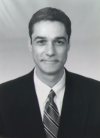 Sylvain Bergeron has been teaching EFL in Japan since 1993. He holds an MEd TESOL from the University of Wollongong (Australia). A member of Gunma University's Center for International Education and Research, he is involved in program planning and development while also continuing to maintain his role as a language instructor. His research interests include global education management, peace and ethics education, and learner-centered teaching.
Sylvain Bergeron has been teaching EFL in Japan since 1993. He holds an MEd TESOL from the University of Wollongong (Australia). A member of Gunma University's Center for International Education and Research, he is involved in program planning and development while also continuing to maintain his role as a language instructor. His research interests include global education management, peace and ethics education, and learner-centered teaching.
[Top]
_____________________
The Shared Benefits of Student Community Volunteer Experiences
– Nancy Harcar
In the process of teaching an English interview class at her university, this presenter noticed gaps of certain skills and experience in several high-need areas on her students’ resumes: lack of language practice with actual native English speakers outside the classroom, lack of experience with volunteerism and other service jobs, and lack of exposure to working in all-English environments. Committed to helping her students find ways to bridge these experience gaps, Nancy Harcar experimented with coordinating an opportunity for her students to volunteer at a non-profit expat event in her city of Gwangju. She will describe how the event was mutually beneficial for both the students and the community, and how the program has grown since its inception.
The Presenter
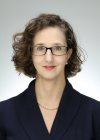 Nancy M. Harcar has been teaching English in Korea since 2009. She currently works at Kwangju Women’s University in the International Education Center, where she is an assistant professor of English. She has been very active in the Gwangju community as a fundraiser, volunteer, and event organizer.
Nancy M. Harcar has been teaching English in Korea since 2009. She currently works at Kwangju Women’s University in the International Education Center, where she is an assistant professor of English. She has been very active in the Gwangju community as a fundraiser, volunteer, and event organizer.
[Top]
____________________
Service Learning in Foreign Language Learning
– Robert Dickey
Service Learning is "a teaching and learning strategy that integrates meaningful community service with instruction and reflection to enrich the learning experience, teach civic responsibility, and strengthen communities." Korea’s universities are now looking towards task-based, content-driven and student-discovery (inquiry) models, plus stronger ties to employment throughout the curriculum. And mandatory "social service" from undergraduates. Service Learning offers opportunities to address all these.
This workshop starts from a few illustrations of on-campus and off-campus activities, and puts teachers together to discuss ideas based on the skills and knowledge beyond language teaching that can be used to motivate students to further develop their language skills.
The Presenter
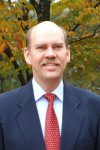 Rob Dickey has been teaching English and assorted other subjects in Korea since 1994. He is a past-president of Korea TESOL, and has been involved in the management of various organizations and events within and beyond TESOL since 1980. After 10+ years teaching in tourism-English and law departments, he has been teaching in the School for Public Service at Keimyung University since 2009. Email: rjdickey@content-english.org
Rob Dickey has been teaching English and assorted other subjects in Korea since 1994. He is a past-president of Korea TESOL, and has been involved in the management of various organizations and events within and beyond TESOL since 1980. After 10+ years teaching in tourism-English and law departments, he has been teaching in the School for Public Service at Keimyung University since 2009. Email: rjdickey@content-english.org
[Top]
_____________________
How a Student Internship Program Can Globalize a University
– Tracy Wiedman
Tokyo International University has created a new internship program through which students have the opportunity to become leaders and role models at the university. Faculty Advisor Tracy Wiedman will discuss the creation and implementation of the Student Leadership Internship (SLI) and how it encourages student-generated activities and ideas in an effort to promote a truly globally minded university community. The presentation will outline the organizational structure of the program as well as offer examples of how the student teams support and serve international students and language programs on campus.
The Presenter
 Tracy Wiedman is currently a Global Teaching Fellow in the School of Language Communication at Tokyo International University, Japan. She has a master's degree in teaching language arts and ESOL from Willamette University and a bachelor’s degree in journalism from the University of Oregon. She also has experience teaching high school students in Oregon and has taught elementary school English in Hanam City, South Korea.
Tracy Wiedman is currently a Global Teaching Fellow in the School of Language Communication at Tokyo International University, Japan. She has a master's degree in teaching language arts and ESOL from Willamette University and a bachelor’s degree in journalism from the University of Oregon. She also has experience teaching high school students in Oregon and has taught elementary school English in Hanam City, South Korea.
[Top]
– Social Justice Strand –
.
Simple Activities to Make Your Schools More Accepting
– Jocelyn Wright
Since UNESCO endorsed “education for all” in The Salamanca Statement in the 1990s, South Korea has made an effort to greatly expand inclusive education. Today, more special-needs children than ever before have access to schools. However, there are still a number of obstacles, including the competition-oriented school culture, a lack of leadership from principals, attitudes towards students with disabilities, cooperation between regular and special education teachers, and teacher education. Although our power may be limited as language educators, we can nevertheless attempt to raise awareness, change perceptions, and eliminate discrimination. Aiming towards these goals, this interactive workshop will discuss special needs and present simple activities that can contribute to more accepting classrooms and schools while promoting English language learning.
The Presenter
 Jocelyn Wright works in the Department of English Language and Literature at Mokpo National University. Her background is in linguistics and education, and she is also CELTA certified. She has been teaching English in Korea at the university level for over seven years. She co-facilitates the local Reflective Practice Special Interest Group (RP-SIG) and is trying to stimulate a Social Justice SIG for critical educators.
Jocelyn Wright works in the Department of English Language and Literature at Mokpo National University. Her background is in linguistics and education, and she is also CELTA certified. She has been teaching English in Korea at the university level for over seven years. She co-facilitates the local Reflective Practice Special Interest Group (RP-SIG) and is trying to stimulate a Social Justice SIG for critical educators.
[Top]
____________________
Content Builders for Community Action
– Maria Lisak
Within the frameworks of community action, social justice, and experiential learning, the presenter shares ten semesters of input materials, actions (projects and tasks), and reflection activities and artifacts of community engagement, volunteering, and social entrepreneurship on topics of public administration and social welfare as created with her Korean university students in Gwangju. The materials used to help students discover the world around come from Gwangju organizations, nonprofits around the world and well-known international organizations. With these materials the learners engage and challenge themselves through a critically reflective lens. Initial materials of each semester elicit the interests, values and goals of the learners which are then used to help them develop an online public presence as a social entrepreneur and activist. Concluding activities of the semester have included a wide range of reflection artifacts for the learners to keepsake these personal and useful discoveries into a portfolio that is organized for easy future reference. By tackling topics of social welfare administration, the learners develop confidence to share their voice in a way that is participatory and co-constructive with their world.
The Presenter
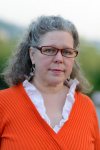 Maria Lisak teaches in the Public Administration & Social Welfare Department at Chosun University in Gwangju, South Korea. She is a teacher who is committed to a volunteer lifestyle and has worked most of her adult life in South Korea. Over the years she has done a lot of stuff to turn working and volunteering into all sorts of great learning experiences for herself and others. She is currently working on her EdD in Literacy, Culture and Language Education through Indiana University. She is researching digital and media technology acquisition and use by low-income older adults.
Maria Lisak teaches in the Public Administration & Social Welfare Department at Chosun University in Gwangju, South Korea. She is a teacher who is committed to a volunteer lifestyle and has worked most of her adult life in South Korea. Over the years she has done a lot of stuff to turn working and volunteering into all sorts of great learning experiences for herself and others. She is currently working on her EdD in Literacy, Culture and Language Education through Indiana University. She is researching digital and media technology acquisition and use by low-income older adults.
[Top]
____________________
Serve Your Students’ Children: Teach Anthropogenic Global Warming
– Julian Warmington
This presentation starts with a theoretical conversation focused on the conference theme – service – and introducing a set of precepts: (a) that students in Korea, as in other countries, have traditionally seen professional relationships with teachers as representing a relationship of trust and a potential to learn wider life lessons than simply covering core course material; (b) that life is only just starting to change drastically for us all due to anthropogenic global warming (AGW); (c) that just as AGW presents the largest challenge to daily life, so too it presents the largest challenge to professional life for all excellent teachers, namely, that we best serve our students by taking the challenge of teaching this life-and-death subject honestly and excellently, and therefore necessarily including a sense of fun and good humor; and (d) that by preparing students for the future of increasingly rapid instability, so too we prepare ourselves.
The presentation will then introduce a selection of teaching materials, while also covering a range of key vocabulary and terms. Both selections include material for teaching across the spectrum of students’ ages and levels. Resources include novels and scenes from already famous movies; published studies and primary scientific literature; songs, cartoons, card games, and board games; current documentaries; and currently available textbooks and online resources. Some resources will be simply described; others will be demonstrated, involving audience interaction.
The Presenter
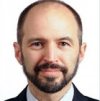 Julian Warmington is a trained and experienced primary and intermediate school teacher from Aotearoa (New Zealand). For his post-graduate diploma in teaching, he specialized in teaching in a second language, including studying the Maori language. He holds an MA in English literature with papers in media studies and political science. He has taught at the university level in South Korea for over ten years, including one extended contract at a national university teaching presentation skills to postgraduate students. Julian is editor-in-chief of The English Connection, KOTESOL’s semi-academic quarterly journal. He is interested in teaching English through song, cooperative learning, and critical thinking.
Julian Warmington is a trained and experienced primary and intermediate school teacher from Aotearoa (New Zealand). For his post-graduate diploma in teaching, he specialized in teaching in a second language, including studying the Maori language. He holds an MA in English literature with papers in media studies and political science. He has taught at the university level in South Korea for over ten years, including one extended contract at a national university teaching presentation skills to postgraduate students. Julian is editor-in-chief of The English Connection, KOTESOL’s semi-academic quarterly journal. He is interested in teaching English through song, cooperative learning, and critical thinking.
[Top]
____________________
Focusing on the Triple Bottom Line in Gwangju
– Maria Lisak & Jocelyn Wright
When John Elkington (1997) talks about the “triple bottom line” in Cannibals with Forks, he is referring to three components of a socially responsible agenda: economic prosperity, environmental sustainability, and social justice. He uses the metaphor of a three-legged stool to drive home the fact that all three are necessary. In this short, interactive session, participants will complete an activity that involves dialoging and networking with others who have engaged in various local initiatives (e.g., Clean Gwangju project, World Human Rights Cities Forum, Gwangju Freecycle, The Vagina Monologues, UNESCO KONA cultural exchange). The hope is that everyone will gain knowledge about current and past projects and be inspired to take positive action in the future.
The Presenters
 Maria Lisak teaches in the Public Administration and Social Welfare Department at Chosun University in Gwangju. She is a teacher who is committed to a volunteer lifestyle. She is currently working on her EdD in Literacy, Culture and Language Education through Indiana University.
Maria Lisak teaches in the Public Administration and Social Welfare Department at Chosun University in Gwangju. She is a teacher who is committed to a volunteer lifestyle. She is currently working on her EdD in Literacy, Culture and Language Education through Indiana University.
 Jocelyn Wright works in the Department of English Language and Literature at Mokpo National University. Her background is in linguistics and education, and she is CELTA certified. She co-facilitates the local Reflective Practice Special Interest Group (RP-SIG) and is trying to stimulate a Social Justice SIG for critical educators.
Jocelyn Wright works in the Department of English Language and Literature at Mokpo National University. Her background is in linguistics and education, and she is CELTA certified. She co-facilitates the local Reflective Practice Special Interest Group (RP-SIG) and is trying to stimulate a Social Justice SIG for critical educators.
[Top]
– General ELT Strand –
.
Grades, Grade Inflation, and What We’re Measuring
– Billie Pritchett
What is the purpose of grades in EFL teaching? What effect might grade inflation have on the instruction? What is actually being measured through grades in the EFL classroom, and what difference do grades make to how and what we teach? These are the primary questions that will be addressed in this talk, and although we might not achieve certainty with respect to these questions, the hope is that through looking at the thoughts and experiences of fellow teachers and sharing our own thoughts and experiences, we can come to some rough understanding of the relationship between grades and our learning-teaching practices.
The Presenter
 Billie Pritchett is an assistant professor of English at Chosun University. He has a master's degree in TESOL from Murray State University (USA), and he has worked as an English language instructor in both Korea and the United States. He has been teaching for over six years.
Billie Pritchett is an assistant professor of English at Chosun University. He has a master's degree in TESOL from Murray State University (USA), and he has worked as an English language instructor in both Korea and the United States. He has been teaching for over six years.
[Top]
____________________
Streamline the Teaching of Writing with Google Classroom
– Christopher Gallagher, Ken Enochs, and Guy Smith
A digital approach can seem like an interesting and innovative way to incorporate IT in the writing classroom, but it can be daunting for the uninitiated and seemingly adds another layer to the already complex task of teaching academic writing to non-native speakers of English. An added dilemma is how far to take a digital approach and the extra demands placed on students who may already be challenged by computer literacy in the conventional sense. However, recent technological developments by Google make it possible for writing teachers to have an almost entirely digital workflow that reduces work while enhancing the writing process for novice academic writers. This practice-based presentation will show just how easy it is to use an integrated combination of Google Classroom, Drive, and Docs to distribute assignments, collaborate on documents, provide feedback, monitor progress, and assess work – all within the digital domain. Available in most any language and free, these apps offer an attractive and effective digital solution for any teacher, program, or writing center, regardless of language, culture, or economic circumstance.
The Presenters
 Chris Gallagher has been a tenured lecturer at International Christian University, Japan, since 2002. Before that, he taught at a number of universities in Japan and at the high school level in Australia. He has presented widely in the area of EAP writing, genre theory, and other practical applications of systemic functional linguistics at JALT conferences, more than five KOTESOL conferences, and has been a Featured Speaker at both. He has also presented at IATEFL, TESOL, and AAAL conferences in England, Spain, the USA, and Australia. He holds an MSc in TESP from Aston University in the UK.
Chris Gallagher has been a tenured lecturer at International Christian University, Japan, since 2002. Before that, he taught at a number of universities in Japan and at the high school level in Australia. He has presented widely in the area of EAP writing, genre theory, and other practical applications of systemic functional linguistics at JALT conferences, more than five KOTESOL conferences, and has been a Featured Speaker at both. He has also presented at IATEFL, TESOL, and AAAL conferences in England, Spain, the USA, and Australia. He holds an MSc in TESP from Aston University in the UK.
 Ken Enochs is a senior lecturer at International Christian University in Tokyo, Japan, where he teaches in the English for Liberal Arts program and coordinates the Global Leadership Studies program. His research interests include discourse analysis, pragmatic competence, and cross-cultural perceptual differences. More recently he is focused on identifying, teaching, developing, and assessing emergent leadership language and behaviors in project-based group work.
Ken Enochs is a senior lecturer at International Christian University in Tokyo, Japan, where he teaches in the English for Liberal Arts program and coordinates the Global Leadership Studies program. His research interests include discourse analysis, pragmatic competence, and cross-cultural perceptual differences. More recently he is focused on identifying, teaching, developing, and assessing emergent leadership language and behaviors in project-based group work.
 Guy Smith is currently a contracted lecturer at International Christian University in Japan, where he teaches Academic Reading and Writing, and Academic Tools and Strategies, as well as in the Graduate School, supporting graduate students writing their graduation thesis. His interests are in ed-tech, critical thinking in language learning, and self-determination theory applied to student and teacher wellbeing.
Guy Smith is currently a contracted lecturer at International Christian University in Japan, where he teaches Academic Reading and Writing, and Academic Tools and Strategies, as well as in the Graduate School, supporting graduate students writing their graduation thesis. His interests are in ed-tech, critical thinking in language learning, and self-determination theory applied to student and teacher wellbeing.
[Top]
____________________
Teaching the Article to Korean Learners
– Christopher Redmond
The article has long been a point of difficulty for Korean learners of English. Even for more advanced learners, article errors remain common in both spoken and written speech. Fortunately, there are several possible solutions to this problem. This presentation aims to provide evidence-based strategies to reduce the number of article errors in Korean learners’ output. Examples of some common article errors from my own learners will be provided, as will some theoretical basis for the reasons behind the errors. The primary aim is to put forward strategies that teachers can use and develop to teach this problematic area of grammar. Evidence from published literature will be used to support the suggestions provided.
The Presenter
 Chris Redmond teaches English at Duksung Women’s University in Seoul. He taught for two years at a high school in Daegu and has worked as a presentation skills instructor at Yonsei University. He received his BA (English and history), MA (film studies), and CELTA from University College Cork and is currently studying towards an MA in applied linguistics and TESOL with the University of Leicester.
Chris Redmond teaches English at Duksung Women’s University in Seoul. He taught for two years at a high school in Daegu and has worked as a presentation skills instructor at Yonsei University. He received his BA (English and history), MA (film studies), and CELTA from University College Cork and is currently studying towards an MA in applied linguistics and TESOL with the University of Leicester.
[Top]
____________________
Effort-Based Grading for General Skills Language Classes
– Daniel Corks
When creating assessments for our students, we often default to the most straightforward thing to evaluate: their raw language ability. However, for a class with a wide range of levels that is often the least fair or productive way to grade them. The lower-level students can’t catch up, and the higher-level students stay on top regardless of effort.
However, rewarding effort over ability, either directly or indirectly, can encourage every student to apply themselves and improve, regardless of level, and it promotes the skills and habits that they will need for continuing to learn outside of the classroom.
This presentation will expand on the rationale for this type of assessment and present specific techniques for doing so. Participants will be encouraged to share their ideas with the audience as well.
The Presenter
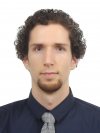 Daniel Corks is a graduate of Sogang University in Seoul, with a master‘s degree in applied linguistics in the field of second language acquisition. He is currently an assistant professor at Dongshin University in Naju, Jeonnam, and a member of the Gwangju-Jeonnam Chapter of KOTESOL.
Daniel Corks is a graduate of Sogang University in Seoul, with a master‘s degree in applied linguistics in the field of second language acquisition. He is currently an assistant professor at Dongshin University in Naju, Jeonnam, and a member of the Gwangju-Jeonnam Chapter of KOTESOL.
[Top]
____________________
“End-to-End” English: The Pitfalls of Translating in ELT
– Daniel Svoboda
In the EFL classroom, educators are faced with a choice of encouraging incremental successes in the target language or pushing learners to make a complete and irreversible decision to communicate exclusively in English during class. Learners looking for shortcuts often request that the educator “translate” specific expressions from their mother tongue into English. For the uninitiated, however, this often complicates rather than clarifies their understanding of English. In this interactive workshop, an attempt will be made to illustrate several examples of how merely answering student questions can lead to misunderstandings and to argue that the EFL classroom must promote the cause of “end-to-end” English, in which language and culture combine to convey meaning.
The Presenter
 Daniel Svoboda is an assistant professor in the Graduate School of Interpretation and Translation (GSIT) at the Hankuk University of Foreign Studies (HUFS) in Seoul, Korea. He graduated with an MA in literature in 2011 and is currently working on his doctoral dissertation in literature. His professional interests include Korean-English translation theory and literary criticism.
Daniel Svoboda is an assistant professor in the Graduate School of Interpretation and Translation (GSIT) at the Hankuk University of Foreign Studies (HUFS) in Seoul, Korea. He graduated with an MA in literature in 2011 and is currently working on his doctoral dissertation in literature. His professional interests include Korean-English translation theory and literary criticism.
[Top]
____________________
– General / Research Strand –
.
Commonly Overlooked Issues with Classroom Management
– Brian Burgoyne
This presentation will deal with classroom management, which is the one subject in education that has the least amount of time dedicated to it. Neophyte teachers are left to muddle their way through their first semester or year before finally finding a method that “works” for them. No matter what works, however, three issues are usually overlooked.
First is the issue of how the teacher is perceived. This ranges from how teachers dress and carry themselves to preparedness and time management. Second is the issue of presence. A teacher must have an active presence in their classrooms from the moment class begins to the time it ends. The third issue relates to your lesson itself. Have you prepared your students mentally for the next lesson? Everything you’ve been working on for the lesson can be lost if your classroom management is poor.
Every issue we try to focus on is related to how we manage our classrooms. Whether we are the neophyte teacher and know very little or think that it’s common sense and “know” what we’re doing, our classroom management skills require as much effort as the daily lessons. They’re all related and improving one will inevitably improve the other.
The Presenter
Brian Burgoyne is a long-time educator with over 15 years of teaching experience. He has taught in a wide variety of environments to diverse groups of students. Brian has been in Korea for eight years and his most recent position is Assistant Professor of English Language at Chosun University. He enjoys reading, writing, and does “not suffer fools.”
[Top]
____________________
Teaching Writing Skills: From Letters to Words to Sentences
– Jessica Magnusson
Many EFL teachers find that there is a huge gap in the English levels of their students. This gap often becomes apparent when teachers assess the writing proficiencies (or lack thereof) of their students. In the same classroom, there may be students who can write full sentences along with other students who have not yet learned to identify and write the letters of the alphabet. This presentation demonstrates eight basic writing activities geared towards beginning or reluctant writers in the kindergarten-middle school age range and illustrates the process of developing a systematic approach towards teaching writing that allows students to move from the letter level to the word level and on to the sentence level with their writing.
The Presenter
 Jessica Magnusson earned a Masters of TESOL from the School for International Training, USA. She has taught general English courses, teacher training courses, and special programs for Gwangju National University of Education since 2011. She has also taught at DongNam Health University in Suwon. Prior to coming to Korea, she taught for four years in China. Her interests include hiking and foreign language studies.
Jessica Magnusson earned a Masters of TESOL from the School for International Training, USA. She has taught general English courses, teacher training courses, and special programs for Gwangju National University of Education since 2011. She has also taught at DongNam Health University in Suwon. Prior to coming to Korea, she taught for four years in China. Her interests include hiking and foreign language studies.
[Top]
____________________
Profiling EFL Learners’ Motivational Trajectories: A Mixed-Methods Study
– Neil McClelland
This presentation presents an investigation into second language learning motivation in students at a single university in western Japan. In a mixed-methods study, Stage 1 developed longitudinal “motivational profiles” based on four attitudinal dimensions: (a) internationalism, (b) grade-orientation, (c) attitudes to native-speakers, (d) and interest in English media, as well as TOEIC scores submitted over two years. Stage 2 employed narrative elicitation with selected students to highlight “critical incidents” in their experiences with English, both before and during their time at university. To facilitate fullest possible participation, interviews were conducted in the L1 (Japanese) by a peer research assistant. The outcome of the study was a set of Thematic Language Learning Histories (TLLH) that combine quantitative profiles with in-depth narrative accounts from the students.
The Presenter
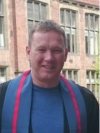 Neil McClelland is an associate professor in the Center for Fundamental Education at the University of Kitakyushu in Japan. His research interests include all aspects of individual differences and personality psychology as they affect second language learning in formal schooling. Neil has over twenty years of experience teaching and researching in Japan.
Neil McClelland is an associate professor in the Center for Fundamental Education at the University of Kitakyushu in Japan. His research interests include all aspects of individual differences and personality psychology as they affect second language learning in formal schooling. Neil has over twenty years of experience teaching and researching in Japan.
[Top]
____________________
Young EFL Learners and Critical Thinking: An Action Research Project
– Stewart Gray
Many commentators stress that students of all ages need to develop critical thinking skills to thrive in the modern world. However, certain issues remain controversial in the literature: Can critical thinking be taught, and if so how? Are young children capable of critical thinking? This presentation details the efforts of two teacher-researchers to teach critical thinking to a class of early elementary-aged, beginner-level Korean EFL students using children’s literature as a foundation. The presentation includes descriptions of the instruments and procedures used to guide planning, assessment, and the action research/reflection process, as well as some of the results observed, difficulties encountered, and perspectives gained as to the practicality of conducting critical thinking-focused classes.
The Presenter
Stewart Gray is an English teacher at Baekseok Culture University and a graduate of the Dankook University TESOL program. He has been living and teaching in Korea five years. His interests are in language, identity, motivation, critical thinking and reflective practice. This presentation is of research being undertaken collaboratively with Roxy Lee, an English teacher associated with Annyeong Elementary School and Dankook University.
[Top]
____________________
NNESTs’ Anxieties and Insecurities: Self-Perceptions of Their Communicative Limitations
– Mikyoung Lee
Although researchers have approached issues associated with NNESTs and increased their research efforts, there is still a gap in the literature on NNESTs’ emotional experiences. Given that NNESTs experience anxieties and insecurities because of their self-perceived inadequate language proficiency, and that teachers’ self-perceptions about themselves tend to affect the ways they teach, this study examined NNESTs’ self-perceived English proficiency levels, anxieties and insecurities, and the strategies they use to reduce those anxieties or inferiority feelings. Twenty NNESTs in Korea completed a questionnaire on self-perceived English proficiency and participated in semi-structured interviews. The findings showed that although the participants evaluated their proficiency as high in the questionnaire, they also identified their anxieties and insecurities due to their communicative limitations in the interviews. Their anxieties originated largely from their students and colleagues as well as other potential reasons. Interestingly, the NNESTs felt more anxious about their communication abilities not because of comparison with NESTs, which was common in previous studies, but because of students who were more fluent in English than they were. To cope with their anxieties derived from lack of communication skills, regardless of their proficiency levels, the participants applied five main strategies: maintaining self-confidence, preparing thoroughly for classes, utilizing other resources, improving their English proficiency, and engaging with self-supported groups. Discussion and suggestions are provided.
The Presenter
 Mikyoung Lee received her PhD in Educational Psychology at the University of Munich, her MA in TESOL at Sookmyung Women’s University, and her BA at Yonsei University. She is a guest researcher in the Department of Psychology at the University of Munich as well as a special lecturer in the Graduate School of TESOL at Sookmyung Women’s University, also lecturing at Christian College of Nursing in Gwangju. Her main research interests are language acquisition, achievement goals and emotions, and teacher emotions and emotional regulation.
Mikyoung Lee received her PhD in Educational Psychology at the University of Munich, her MA in TESOL at Sookmyung Women’s University, and her BA at Yonsei University. She is a guest researcher in the Department of Psychology at the University of Munich as well as a special lecturer in the Graduate School of TESOL at Sookmyung Women’s University, also lecturing at Christian College of Nursing in Gwangju. Her main research interests are language acquisition, achievement goals and emotions, and teacher emotions and emotional regulation.
[Top]
